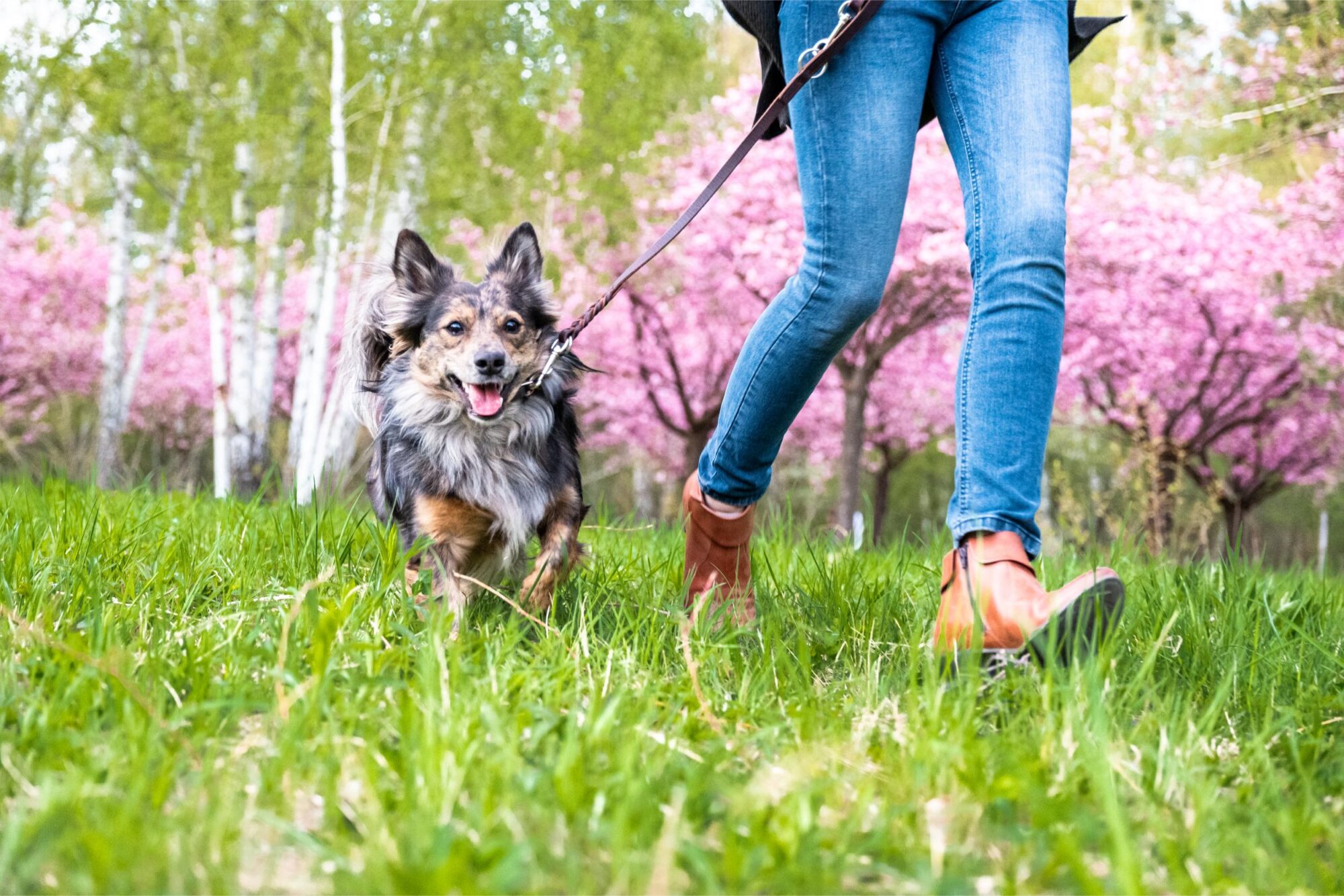Spring into Pet Wellness: A May Floral Guide For Paws and Claws

In the animal kingdom, certain species have visual markers to announce that they are dangerous, toxic, or otherwise off-putting. Scientists believe that bright colors are one of nature’s warning signs.
Spring flowers aren’t always bright, and not all bright flowers are toxic to pets. However, as a general rule, it’s best to know which plants are considered safe, and which ones have no place in a pet’s backyard.
Rule of (Green) Thumb
Once you know which plants and flowers are the biggest risks to spring pet safety, you can either remove them from the garden or simply avoid bringing them home.
There are many wonderful varieties of perennials, or plants that come back every year, but the following are not safe around pets:
- Aloe vera
- Peony
- Yarrow
- Dahlia
- Chrysanthemum
- Milkweed
- Carnation
- Wolfsbane
- Daisy
- Hosta
- Iris
- Elephant ear
- Lobelia
- Hellebores
- Lily of the valley
- Tulips
- Azalea
- Rhododendron
- Wisteria
- Hydrangea
- Oleander
- Sago palm
Similarly, people love to fill pots or raised beds with annuals, or plant varieties that only last one season. The following annuals are known to cause serious problems when eaten by pets:
- Begonia
- Coleus
- Asparagus fern
- Geranium
- Kalanchoe
- Portulaca
- Nicotiana
- Lantana
What to Look For
Any changes to your pet’s behavior or appearance should trigger immediate action. If you know or suspect that your pet ate a plant or flower, please seek emergency veterinary care.
Symptoms can range depending on the plant and volume consumed, and include:
- Vomiting
- Diarrhea
- Tremors
- Drooling
- Pain to the touch
- Breathing difficulty
- Trouble swallowing
- Seizures
We can run diagnostic tests to know exactly how a toxic plant has affected the body’s systems, and provide medical support to ease symptoms.
Pet-Friendly Flowers
It is worthwhile to train pets to avoid all plants and blossoms, regardless of their toxicity. As a result, you and your pet can enjoy the fine qualities of the following pet-friendly flowers:
- Canna
- African violet
- Alyssum
- Aster
- Cornflower
- Heuchera
- Petunias
- Coreopsis
- Impatiens
- Pansies
- Magnolia
- Zinnias
- Sweet potato vine
- Sunflowers
Lastly, please remember that even floral arrangements can pose risks to pet safety. Never allow them to sniff or eat the bloom, stem or leaves, and be sure they cannot drink the water in the vase.
If you have further questions about spring pet safety, please call Flowers Mill Veterinary Hospital at (215) 752-1010. Our team is always here for your pet.

